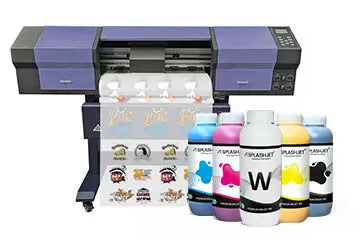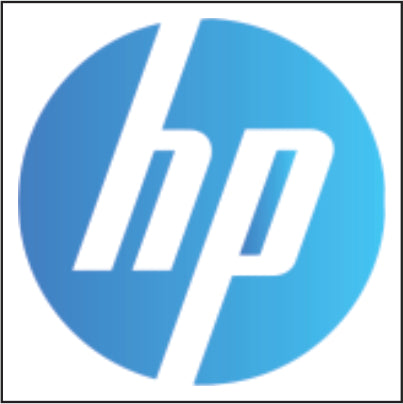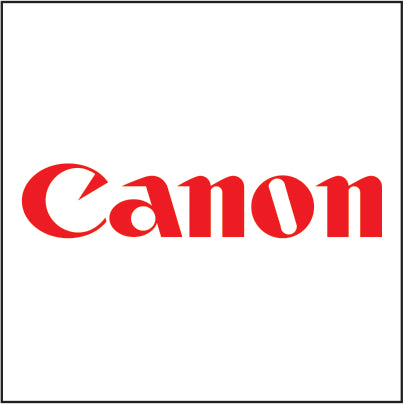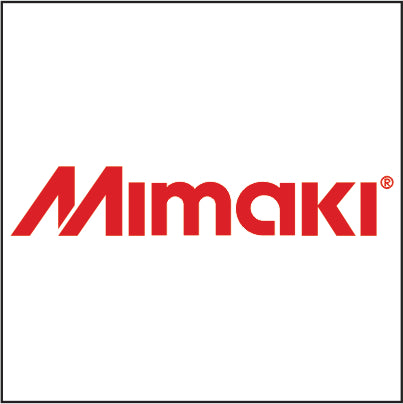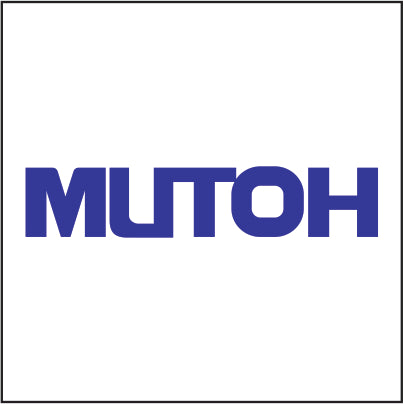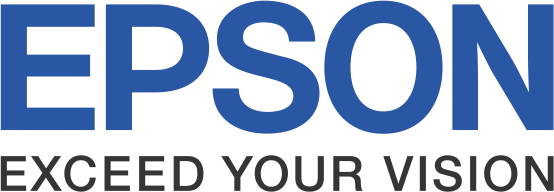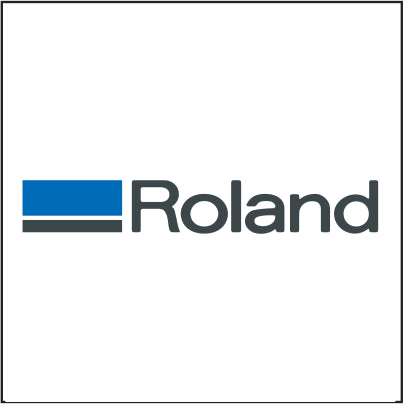Direct-to-film printing (DTF) has emerged as a game-changer in the custom apparel world. It offers a level of versatility, durability, and cost-effectiveness that has both small startups and large print shops taking notice. Unlike older methods (for example, direct-to-garment printing), DTF involves printing your design onto a special transfer film and then heat-pressing it onto the fabric. This simple difference means you can apply designs to cotton, polyester, blends – almost any garment – without needing to pretreat the fabric first. The result? High-quality prints on everything from t-shirts to tote bags, done faster and with less fuss than many traditional techniques.
The Rise of DTF Printing in Custom Apparel
DTF printing is rapidly rising in popularity across the custom apparel industry. In my experience, it’s because DTF removes many hurdles that used to frustrate printers. You no longer have to say “no” to a customer because their design works only on cotton or because you’re worried about print durability. With DTF, one printer can handle a wide range of fabrics and produce designs built to last. Unlike methods that might crack or fade after a few washes, DTF prints are known for their vibrant colors and crisp details (even after repeated laundering) – a huge plus for customer satisfaction. And if you’re curious about how the process actually works from start to finish, be sure to check out our Step-by-Step DTF Printing Tutorial for Custom T-Shirts for a detailed walkthrough.
-
Versatility: A DTF setup can print on cotton, polyester, blends, and more. There’s no need for different printers or techniques for different fabrics, and no pre-treatment is required for dark garments. One day you might print on a canvas tote, the next on a synthetic sports jersey – the same DTF Supplies get the job done across the board.
-
Durability: Prints made with DTF technology hold up exceptionally well. They’re resistant to cracking, fading, and peeling. The transferred design essentially becomes part of the garment, maintaining a soft feel and vivid look through dozens of wash cycles. Customers love that their custom shirts stay bright and intact.
-
Affordability: Compared to some other methods, DTF has a relatively low barrier to entry. The printers (especially smaller models) are often budget-friendly, and consumables like film and powder are inexpensive. This means startups can get going without a massive investment, and established businesses see better margins with less waste.
-
Scalability: DTF works for one-off orders and large batches alike. Small business owners can print single shirts on-demand without worrying about high setup costs per job (as is common with screen printing). On the flip side, if a big order comes in, DTF printers can handle volume – some even set up multiple designs on one film to press many transfers in one go. This flexibility makes it suitable for home-based businesses and high-volume production facilities.

Key Advantages of Using the Best DTF Printers and Inks for Custom Shirts
Choosing the best equipment (and pairing it with quality inks) amplifies all the inherent benefits of DTF. Let’s highlight some key advantages that the top-tier DTF printers and inks bring to custom shirt printing:
-
High-Resolution, Vibrant Prints: DTF technology can achieve extremely fine detail and color accuracy. Many of the best DTF printers operate at resolutions of 1440 dpi or higher, producing sharp lines and rich colors. They also lay down a white ink base under the colors, which makes designs really pop on dark fabrics. The right ink set further ensures colors are vivid – for instance, printers designed to use MUTOH ECO INKS deliver great brightness while being eco-friendly. (DTF is widely regarded as one of the most versatile and color-rich printing methods available today.)
-
Beginner-Friendly Operation: Unlike some industrial equipment with steep learning curves, many DTF machines are surprisingly user-friendly. They often come with straightforward software and require only basic maintenance like regular head cleanings. This means even if you’re new to garment printing, you can get a quality DTF printer up and running with minimal training. The learning curve is gentle – we’ve seen first-timers succeed with DTF in a short time.
-
Budget-Friendly Entry: There are solid DTF printer models available at various price points. You don’t need to spend a fortune to get started. Some compact units (including converted models) allow small businesses to dip their toes into DTF without breaking the bank. And down the line, you can always upgrade to a larger or faster machine as your business grows. In short, DTF offers an affordable path to professional-quality printing.
-
Fast Turnaround: DTF printing streamlines the workflow from design to finished product. There’s no lengthy setup like making screens or extensive pre-treatment steps. You can print a design on film and heat-press it onto a shirt in a matter of minutes. For businesses, this means quicker order fulfillment and the ability to offer customers speedy delivery times. Rush orders and last-minute promotions become much easier to handle with DTF.
-
Easier Maintenance: Good DTF printers are built with maintenance in mind. Automated cleaning cycles, accessible parts, and widely available replacement components are common. By keeping up with simple daily and weekly maintenance (like shaking the white ink cartridges and running nozzle checks), you’ll find these printers can operate with minimal downtime. In fact, many DTF supplies (such as cleaning solutions and replacement printheads) are readily available to help keep your machine in top shape. A little care goes a long way, and the best printers make it as hassle-free as possible.
Top 10 Best DTF Printers and Inks for Custom Shirts in 2025
When it comes to picking a DTF printer, the year 2025 has brought us a fantastic lineup of options. Below we’ve compiled the top 10 printers making waves in the DTF world, from compact models perfect for beginners to industrial machines for high-volume shops. We’ll also touch on what makes each one stand out:
1. Epson SureColor P600
The Epson SureColor P600 is a compact desktop photo printer that many have successfully converted for DTF printing. It’s renowned for its excellent print quality – up to 5760×1440 dpi – which means your custom shirt designs come out extremely sharp and color-rich. This printer is a great choice for small spaces and small businesses. The downside is speed: it’s not the fastest on the block. If you’re printing large batches, the P600 will be slower than dedicated industrial DTF machines. However, for detailed prints and short runs, it’s a reliable, high-quality workhorse.
2. L1800 DTF Printer
The L1800 (originally an Epson L1800 photo printer) is one of the most popular entry-level DTF printers. It can print designs up to A3+ size, which covers most t-shirt graphics. The L1800 stands out for being affordable and beginner-friendly – many newcomers start their DTF journey with this model. Setup and operation are straightforward, and it delivers good quality for the price. Keep in mind, though, that an entry-level machine will require a bit of TLC. The L1800 needs regular maintenance and cleaning, especially if you’re running it daily. It’s not the best choice for high-volume production, but for a startup custom apparel business, it offers fantastic value.
3. Mimaki TxF150-75
The Mimaki TxF150-75 is a dedicated industrial DTF printer introduced by a major name in professional printing. This model is built for high-speed, high-volume output, making it ideal for larger businesses or those looking to scale up production. One of its key advantages is that it’s designed to work with eco-friendly Mimaki inks – giving you vibrant prints while also being mindful of environmental impact. It even features an integrated powder application and curing system, streamlining the transfer process. Pros of the Mimaki include its rugged construction and reliability for nonstop operation. The primary con is cost: this printer is a significant investment (and takes up more space). But if your goal is to produce large quantities with consistent quality, the TxF150-75 is hard to beat.
4. Roland BN-20D
Roland’s BN-20D is a neat little hybrid – a 20-inch desktop printer/cutter adapted specifically for DTF printing. It’s compact and portable, making it a favorite for home-based businesses or shops with limited room. The BN-20D offers sharp print detail (Roland is known for quality) and even has cutting capabilities for making custom transfers or decals. This printer shines for small designs, logos, and heat transfers that need precision. Users love how easy it is to operate. However, because of its size and slower print speed, it’s not the machine you’d choose for very large orders or scaling up to a factory-style production. Think of the BN-20D as a specialty tool perfect for niche applications and on-demand jobs.
5. Canon imagePROGRAF PRO-300
The Canon PRO-300 is originally a high-end photo printer, and it brings that premium color accuracy into the DTF arena. It produces gorgeous prints with a wide color gamut and smooth gradients – photographers use it for a reason. For custom shirts, this means your detailed or color-critical designs will look fantastic. It’s also relatively eco-conscious, operating efficiently with minimal ink waste (Canon’s systems are optimized for fine art printing). The PRO-300 is ideal for small runs of premium products – say, a limited edition line of shirts where quality matters more than quantity. Its limitation is speed and size: it’s not meant for bulk printing, and it handles up to 13″×19″ paper (which is fine for most transfers). In short, the Canon PRO-300 is a superb choice for quality over quantity scenarios.
6. A3 R1390 DTF Printer
The A3 R1390 is another popular budget-friendly DTF printer based on an Epson engine. As the name suggests, it handles A3 size film. The big draw of the R1390 is its speed and cost-effectiveness – it’s often tweaked for slightly faster output compared to similar models, and parts/inks for it tend to be affordable. This printer can reliably pump out vibrant prints for t-shirts, hoodies, and even small merchandise like patches. It’s easy to maintain, with plenty of community support (since a lot of people use this platform). On the flip side, the R1390 isn’t well-suited for heavy, continuous production. If you push it too hard with bulk jobs, you might encounter wear-and-tear or need frequent maintenance. Use it within its comfort zone (moderate daily printing) and it will serve your business well.
7. Brother GTX Pro
The Brother GTX Pro is originally a direct-to-garment machine, but it has earned praise in hybrid setups and experimental DTF workflows as well. This printer is all about flexibility and scalability. It’s built by Brother for high throughput DTG, which means it has fast print speeds, dual print heads, and robust construction – attributes that also benefit DTF transfer creation. Many mid-size print shops love the GTX Pro because it can handle both DTG and DTF, expanding its usefulness. The color management is top-notch, yielding vibrant prints. It’s also designed with relatively low maintenance needs (automatic cleaning, etc.). The main consideration is the upfront cost – the GTX Pro is a higher-end machine, so it’s an investment. However, if you plan to grow your printing business, this kind of scalable solution can pay off in the long run.
8. Ricoh Ri 2000
The Ricoh Ri 2000 is another hybrid-capable printer (like the Brother, it’s a DTG machine that some use for DTF transfers too). Ricoh engineered it for speed and advanced functionality. It has features like dual carriages and even cloud-based monitoring/maintenance alerts, which is pretty cutting-edge. In practice, the Ri 2000 can crank out prints quickly and with great detail – perfect for a high-demand production environment. The prints are consistent and long-lasting, which customers appreciate. One thing to note: fully leveraging this printer requires some expertise. The Ri 2000 has a lot of settings and capabilities, so an operator must be well-trained to get the most out of it (and to maintain it properly). It’s a fantastic high-volume printer, but be prepared to invest time in learning its ins and outs.
9. Epson F2100
The Epson SureColor F2100 is a veteran in the garment printing field. It’s a DTG printer by design, but many have adopted it for DTF because of Epson’s reliable printheads and ink system. The F2100 offers fast and precise printing – it’s known for its PrecisionCore technology that lays down ink efficiently and accurately. One big advantage is Epson’s UltraChrome DG inks, which are eco-friendly and Oeko-Tex™ certified for safety. In DTF use, it produces durable transfers that can be applied to shirts and hold up very well over time. Using this printer feels quite seamless since it integrates nicely with design software and has a user-friendly interface. However, keep in mind the F2100 is purpose-built for textiles (it excels at that), and if you try to use it exclusively for non-textile applications, you wouldn’t be tapping its full potential. For a custom apparel shop, though, it’s a tried-and-true choice that delivers on quality and consistency.
10. DTF PRO L1800
The DTF PRO L1800 is essentially a professional-grade take on the L1800 platform we mentioned earlier. It’s a modified and enhanced version sold by DTF-specific manufacturers to give users a more turnkey experience. This model is built to provide professional quality output while still being relatively compact. It’s an attractive option for serious hobbyists or small businesses that want great prints but don’t have room (or budget) for a giant industrial machine. The DTF PRO L1800 produces reliable, high-resolution prints on various materials. It shines in delivering consistency – each print looks as good as the last. The trade-off comes in speed: like its standard L1800 cousin, it’s not the fastest for mass production. Large orders will take time to get through. Think of the DTF PRO L1800 as a solid “prosumer” printer: a step above entry-level, capable of excellent results, but still best for modest production demands.

Choosing the Right DTF Printer for Your Needs
With so many options on the table, how do you select the best DTF printer for your particular business or project? Whether you’re printing custom shirts as a side gig or running a full-fledged print shop, consider the following factors before you decide:
-
Printing Resolution: If your business involves printing highly detailed artwork or fine text, look for a printer with at least 1440 dpi resolution. Higher resolution ensures sharper and more detailed prints, which is crucial for intricate designs or photographs on apparel.
-
Printing Speed: Think about your typical order size and turnaround expectations. Some printers can only produce a few transfers per hour, while others are built for rapid production. If you often handle bulk orders or tight deadlines, a faster printer (with features like multiple print heads or larger print width) will save you time and keep customers happy. On the other hand, for small-scale or on-demand printing, a slower desktop model may be perfectly sufficient (and more cost-effective).
-
Fabric Compatibility: Luckily, most DTF printers can handle a variety of fabrics since the transfer process is the same for cotton, polyester, blends, etc. However, ensure the inks and adhesive powder you use are formulated for the materials you plan to print on. The good news is that quality DTF supplies from reputable vendors will clearly indicate compatibility with common fabric types. Versatility here is key – you want to confidently print on t-shirts, hoodies, caps, tote bags, and more.
-
Ease of Maintenance: All DTF printers require some maintenance (like any inkjet-based system). The question is how much effort and technical skill is needed. Some models have self-cleaning functions and user-friendly maintenance routines, while others might demand manual intervention (e.g., daily manual cleanings or component replacements). If you’re not the tinkering type, opt for a model known for reliability and simple upkeep. Downtime for maintenance is lost money, so a printer that’s easy to care for will pay off.
-
Budget and Scalability: Finally, align your choice with your budget and growth plans. Entry-level printers are cheaper but may not keep pace if your order volume quadruples. Conversely, an industrial printer is a big investment – worthwhile only if you have the demand (or plan to create it). It’s often smart to start with a mid-range model that delivers professional results, then upgrade as your business expands. Keep in mind not just the printer cost, but also the price of inks and consumables. A slightly more expensive machine that uses cheaper ink can save money long-term. Balance your immediate needs with where you want to be in a year or two.
Business Benefits of Using the Best DTF Printers and Inks for Custom Shirts
DTF printing isn’t just a cool technology – it has real business benefits that can improve your bottom line and customer satisfaction. First and foremost, the print quality and longevity translate to happy customers. Vibrant, long-lasting prints on custom shirts mean people remember your work (and your brand) for all the right reasons. There’s a marketing saying: “quality is the best business plan,” and it holds true here. By using top-notch equipment and inks (like reliable printers paired with high-grade consumables such as MIMAKI INKS or Mutoh inks), you ensure that every product you deliver feels professional. This boosts customer confidence and repeat orders.
Another major benefit is cost efficiency. DTF’s affordable startup costs and low waste make it attractive for business owners. You don’t need a huge upfront investment as you would with, say, mass screen printing setups. Even the ongoing supplies are reasonably priced – for example, DTF supplies (film, powder, ink) are generally cheaper than the materials for other print methods, especially considering there’s minimal waste ink and no expensive pre-coating chemicals. All of this means you can price your products competitively while still maintaining healthy profit margins.
Quick turnaround time is a competitive advantage as well. In the custom apparel market, being able to produce and deliver orders rapidly can set you apart from competitors. DTF printing allows you to accept last-minute orders or offer services like 24-hour custom shirt printing. This scalability – handling one shirt today and one hundred tomorrow – gives businesses tremendous flexibility. You can take on a wide array of jobs without worrying about setup costs or machine changeovers for different fabric types. For a growing business, that agility can lead to new opportunities and revenue streams (think custom sportswear one day, corporate logo shirts the next, and event tees the week after).
Why It Pays to Invest in a Reliable DTF Printer
With any business equipment, there’s a temptation to cut costs – but printing is an area where reliability truly matters. Investing in a high-quality DTF printer (and using the proper inks and parts) will pay dividends over time. A reliable printer produces consistent quality day in and day out; there are no unpleasant surprises where one batch looks different from another. This consistency builds trust with your clients, as they know they’ll get the same great result with every order.
Moreover, a well-built printer reduces the risk of unexpected downtime. Cheaper or poorly made machines might break down more often, leading to repair costs and delays. In contrast, reputable models – think of brands like Mimaki, Epson, or Mutoh – are engineered for durability. For instance, Mutoh’s wide-format printers have a reputation for robust construction and longevity. Pairing such a machine with genuine Mutoh inks (formulated to run cleanly and efficiently through the system) can further ensure smooth operation with minimal interruptions. Less downtime and fewer maintenance headaches mean you can accept more orders and deliver on time, which directly impacts your revenue and reputation.
High-performance DTF models often come with productivity-enhancing features too. They might have faster print heads, larger print areas, or automation that lets you multitask (like printing on one design while curing another). These features effectively allow you to do more in less time, accelerating your production without sacrificing quality. Over a year’s time, the output difference between a basic setup and a reliable pro-grade setup can be massive. If you plan on growing your custom apparel business, a reliable printer isn’t just an expense – it’s an investment in efficiency and capacity.
Finally, having a top-notch DTF printer enables you to expand your product offerings confidently. When you know your equipment can handle it, you’re more likely to take on new challenges – printing on specialty fabrics, experimenting with detailed artwork, or offering products like hats, hoodies, and canvas bags in addition to shirts. A reliable printer gives you the freedom to say “yes” to profitable jobs. In a competitive market, that versatility and dependability can distinguish you as a go-to provider of custom prints. In short, spending a bit more upfront on a trusted DTF setup can lead to greater earnings, fewer hassles, and a stronger business in the long run.
For more technical insights into this growing field, you can also explore FESPA’s overview of Direct to Film Printing Technology and Textile Applications. It’s a helpful resource for understanding how DTF compares with other print methods in professional production environments.
Conclusion
DTF printing is reshaping the custom apparel industry by combining top-tier print quality, versatility across materials, and cost-effective operation. As we’ve explored, the best DTF printers – from entry-level favorites to industrial powerhouses – each offer unique advantages that cater to different needs. Pairing these printers with the right inks and supplies ensures you get the most out of the technology, whether that means jaw-dropping colors, reliable day-to-day production, or eco-friendly printing practices.
For anyone looking to create custom shirts (or any printed apparel) that truly stand out, investing in a DTF setup is a smart move. It empowers businesses to produce eye-catching, durable designs on a wide range of products, all while keeping turnaround times quick and costs in check. In an era where customers expect both quality and speed, DTF printing provides a perfect balance of both. Whether you’re a beginner just starting with your first printer or a seasoned pro upgrading to the latest model, choosing the right DTF printer and inks will help your business shine in a competitive market.


